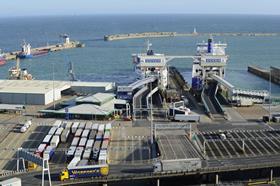
Delays at the UK-EU border are getting worse, new research indicates, as Brexit paperwork continues to snarl up supply chains.
A survey of 350 UK supply chain managers by the Chartered Institute of Procurement & Supply (CIPS) found over half (58 per cent) saying that delays have become longer since the beginning of January 2021, with 30 per cent reporting that delays are significantly longer than they were when the new border rules first came into effect.
As many as 63 per cent of those surveyed have experienced delays of at least two to three days in getting goods into the UK, up from 38 per cent in a similar survey in January. The situation is only slightly better for exports, with 44 per cent experiencing delays of at least two to three days getting goods into the EU.
By far the main reason for the holdups is the time it takes for customs to work through the new paperwork, with nearly half of businesses (47 per cent) citing this as the chief cause. Other customs issues such as a lack of capacity among customs staff and drivers being turned away for having the wrong paperwork were also cited by respondents.
Only nine per cent of people said new Covid-19 protocols were causing holdups at the border.
The delays come despite the fact many new import certifications are still yet to come into force. The extra checks, which will impact a wide range of goods, are due to be phased in from April.
Dr John Glen, CIPS economist and visiting fellow at the Cranfield School of Management, said:“We are well into the second month of the new arrangements and the hope that delays at the border would reduce as freight volumes returned to normal and customs systems became used to the new processes has not come to pass.
'What is even more concerning is that the delays are continuing to get longer, putting more and more pressure on the UK’s supply chains and affecting the timely delivery of much-needed goods.
“The paperwork required at the border is not going to change any time soon, so we should brace ourselves for these delays to continue for at least the next few months. New requirements for import certifications are also rapidly approaching and these will only add to the paperwork required, causing further delays for businesses.
'The knock-on impact of these delays will trickle far down the supply chain and ultimately result in stock shortages and inflated prices for consumers”.



